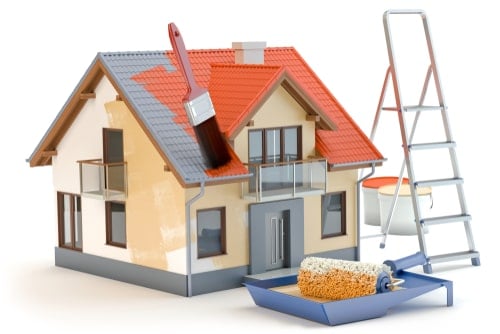
Property maintenance for landlords is seemingly endless. Along with purchasing and managing the property, landlords must learn how much to budget for the ongoing maintenance needs they are sure to encounter. In addition to emergency repairs, preventative maintenance plays a key role in the health of your investment property. So, join us below to learn the types of property maintenance for landlords and how to budget so you will be ready for anything!
Types of Rental Property Maintenance for Landlords
Landlords are required by law to maintain basic standards of habitability in their rental properties. The warranty of habitability generally includes addressing issues related to the following –
- Electrical System Repairs
- Structural Repairs (including severe damage to walls, ceiling, or floors)
- Plumbing System Repairs
- Mold Found in the Property
- Extermination of Severe Pest Infestations (not caused by the tenant)
- Any Other Repair that Threatens the Health or Safety of the Tenants
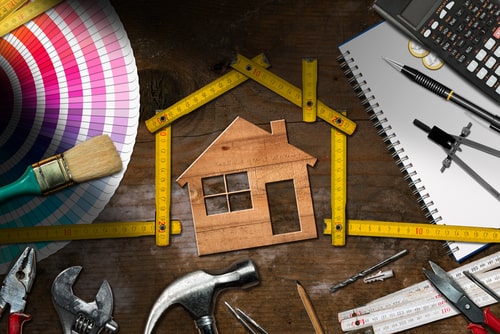
That said, there are several additional types of maintenance issues that landlords face regularly. Therefore, to budget effectively, understanding the requirements of property maintenance for landlords is essential. So, before we discuss budget tips, let’s review the different types below –
- Emergency Maintenance
- Routine Preventative Maintenance
- Seasonal Maintenance
- Property Turnover
Emergency Maintenance
As the name suggests, emergency maintenance happens when you least expect it. However, property maintenance for landlords includes preparing for such events. Whether it is a broken-down heater, broken and unsecured entry door, or frozen burst pipe, these issues require immediate attention from the landlord. Doing so protects your tenant’s warrant of habitability while also protecting the property from more extensive damage.
Routine Preventive Maintenance
Preventative maintenance and diagnostic repairs are an essential part of property maintenance for landlords. Consider setting up maintenance contracts with vendors for major systems such as HVAC. That way, these vendors can schedule regular checkups throughout the year to ensure your most expensive systems are running at peak performance. Additional things that benefit from routine maintenance are –
- Refrigerators
- Sump Pumps
- Stoves
- Dishwashers
- Washer/Dryer
Seasonal Maintenance
Depending on the location of your rental, seasonal property maintenance for landlords will vary. Regardless, there will be some seasonal tasks to complete. So, these could range from gutter cleaning each Fall to snow removal. Need to know more? Check out our comprehensive blog on year-round property maintenance for landlords to help you plan!
Property Turnover
Property turnover is the process of making the property ready for a new tenant after another vacates. Depending on several factors, expenses for this property maintenance task for landlords could vary significantly. Some of the costs involved with property turnover include but are not limited to –
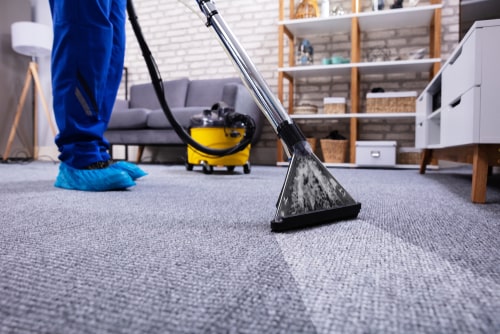
- Property Damage from Tenants
- Repairs Related to Wear and Tear
- Painting Touch Ups
- Carpet Cleaning
- Professional Cleaning
For more information to help you prepare for property turnover costs, check out our blog!
Other Types of Property Maintenance for Landlords
In addition to the list above, landlords must prepare for every other contingency that can come their way. Let’s take a look at a few more things property owners should consider when planning their budget.
- Landscaping
- Replacing Fixtures or Appliances
- Pest Control
- Snow Removal
- Waste Management
Landscaping
Whether landlords handle it themselves or hire a vendor, outside spaces need some attention. Pruning dead tree limbs is necessary for safety, and curb appeal is important to attracting quality renters. That said, tenants may be responsible for lawn cutting per the lease, but landlords will still need to address larger tasks.
Replacing Fixtures or Appliances
Nothing lasts forever. That said, planning for replacing items such as broken or damaged fixtures and old appliances is a must. Therefore, to help budget, accordingly, check out the average lifespan of common appliances below –
- Refrigerators – 10 to 14 Years
- Gas Range – 13 to 15 Years
- Electric Stove – 14 to 16 Years
- Dishwasher – 9 to 12 Years
- Washing Machine – 8 to 12 Years
- Electric Dryer – 11 to 14 Years
- Gas Dryer – 11 to 13 Years
Pest Control
Depending on the situation or type of property, pest control may fall under property maintenance for landlords. So, if you own a multi-family building, a regular pest control plan is essential to preventing costly issues from arising. However, even in a single-family home, preventative measures can protect your property from potential damage caused by vermin or insects. That said, infestations caused by the neglect of the tenant are their responsibility to remedy. Although, landlords need to follow through to ensure the problem is irradicated.
 Snow Removal
Snow Removal
In cases where the landlord takes on coordinating snow removal, a seasonal contract is necessary. Therefore, this takes budgeting and planning. Start well before the first flake hits the ground to find an appropriate vendor. Then, communicate any pertinent details to the tenants so they know what to expect as well as any responsibilities they may have.
Waste Management
As a landlord, if you own a multi-family building, keeping common areas clean is part of standard property maintenance for landlords. Furthermore, property owners are typically responsible for providing approved waste collection bins and organizing regular pick-up services. Thus, keeping the property free of debris and limiting the risk of attracting unwanted rodents.
Property Maintenance Budgeting Tips for Landlords
Well, now that we have discussed the multitude of tasks that fall under property maintenance for landlords, the next step is paying for it all. Any savvy investor knows that the difference between success and failure is careful preparation and the numbers. So, even though every rental property is different and often faces unique challenges, there are ways to estimate potential costs. Keep in mind; this is not an exact science, only a means to assist owners in preparing for the expected and unexpected rental property maintenance for landlords. Continue reading to learn more about helpful formulas to help estimate costs.
The 1% Formula
This rule uses the property’s overall value to help estimate property maintenance for landlords. So, simply multiply the value by 1%, and this equals an approximate annual maintenance budget. For example, if the home’s value is $150,000, the estimated yearly maintenance costs would be $1,500.
Square Footage Formula
Simply put, the square footage formula estimates maintenance cost at $1.00 per square foot. So, a 1000 square foot property would need a minimum of $1,000 for regular property maintenance for landlords. However, keep in mind, this is only an estimate, and it is always best to stash away a little extra per month for those unexpected occurrences.
Other Factors to Consider When Budgeting for Landlord Property Maintenance
As we mentioned above, these formulas help to provide a rough estimate of property maintenance for landlords. However, many factors could significantly impact the maintenance needs of your rental property. So, in addition to the estimates below, consider these other factors –
Starting Property Condition
Let’s face it; if the property condition from the start is already not pristine, owners may run into problems. Therefore, honestly evaluate the property condition and budget extra as needed.
The Property’s Age
Ago of the home, fixtures, appliances, and systems plays a huge role in potential maintenance needs. Therefore, if you know any of these areas of your property are aging, be prepared for the unexpected and budget extra!
So, to create the most accurate picture of the property’s maintenance needs, consider both the standard estimation formulas and the additional factors. Therefore, the best option is to average the estimates from the two formulas and add up to 10% for any extenuating circumstances. Remember, emergencies can strike at any time, and it is the landlord’s responsibility to prepare accordingly. So, it is better to err on the side of extra savings rather than not.
Final Thoughts
Rental property maintenance for landlords can induce feelings of stress for those not prepared to handle it accordingly. So, why not remove the stress by leaving maintenance tasks to the professionals?
The experts at Bay Property Management Group can help owners plan for repair costs and schedule cost-saving preventative maintenance. When those unexpected repairs do arise, our team of in-house maintenance technicians and a trusted network of vendors can handle any job, big or small. Give us a call today to find out more about how professional rental management can make property ownership the enjoyable experience it should be!

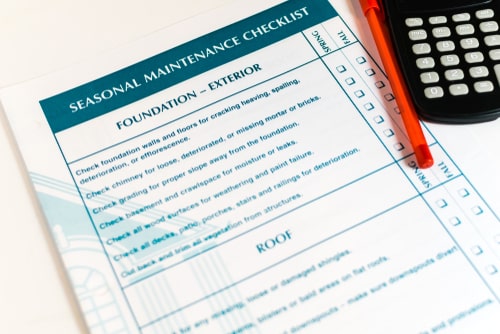
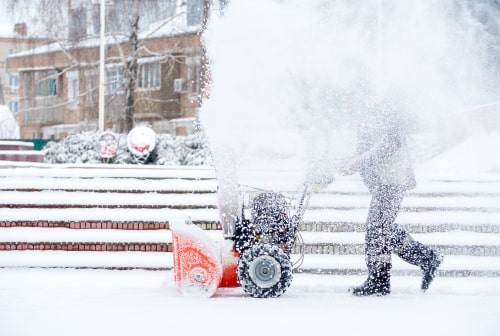 Snow Removal
Snow Removal